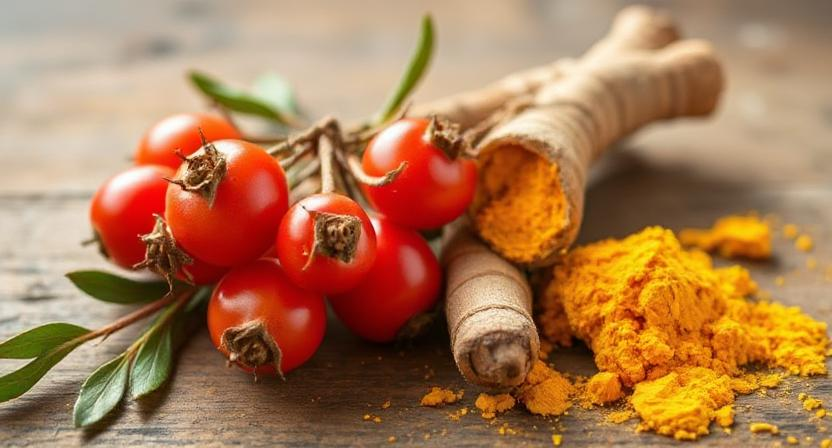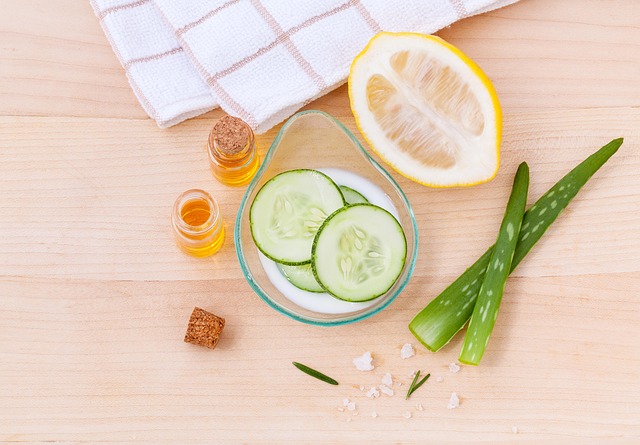Acne scars can be a frustrating reminder of past breakouts, but natural remedies offer a gentle, cost-effective way to improve skin texture and reduce their appearance. While severe scarring may require professional treatments like chemical peels or laser therapy, these natural solutions can work wonders for mild to moderate acne scars. Below, we explore the 10 best natural remedies for healing existing acne scars, backed by science and dermatologist insights, to help you achieve smoother, clearer skin.
1. Aloe Vera 🌵
Aloe vera, a succulent revered for centuries in traditional medicine, is a powerhouse for skin healing due to its rich composition of bioactive compounds. The gel extracted from its leaves contains aloein, aloesin, and polysaccharides, which reduce hyperpigmentation, soothe inflammation, and stimulate collagen production. Its high water content hydrates the skin, while enzymes like bradykinase help calm redness and irritation. Aloe vera’s regenerative properties make it particularly effective for fading post-acne marks and improving skin texture, offering a cooling, non-irritating solution for all skin types.
- How to Use: Apply fresh aloe vera gel directly to scars and leave it on for 30 minutes before rinsing. Use daily.
- Why It Works: Aloe vera boosts collagen production and reduces inflammation, helping to fade scars over time.
- Tip: Use pure, organic aloe vera gel for best results.
2. Honey 🍯
Honey, particularly raw or Manuka varieties, is a natural skincare gem packed with therapeutic compounds. Rich in antioxidants like flavonoids and phenolic acids, honey combats oxidative stress that can worsen scarring. Its natural hydrogen peroxide content provides antibacterial benefits, preventing new breakouts that could exacerbate scars. The presence of gluconic acid gently exfoliates, while its humectant properties lock in moisture to support skin repair.
- How to Use: Dab raw honey onto scars, leave it on for 20–30 minutes, and rinse with warm water. Repeat 3–4 times a week.
- Why It Works: Honey’s antioxidants and enzymes help repair damaged skin and reduce redness.
- Tip: Mix honey with a pinch of cinnamon for added antimicrobial benefits, but test for sensitivity first.
3. Lemon Juice 🍋
Lemon juice, derived from the citrus fruit, is a potent natural remedy for acne scars due to its high concentration of vitamin C (ascorbic acid) and citric acid. Vitamin C is a powerful antioxidant that neutralizes free radicals, stimulates collagen synthesis, and brightens hyperpigmented areas. Citric acid, an alpha-hydroxy acid (AHA), promotes gentle exfoliation by dissolving dead skin cells, revealing smoother, more even-toned skin. The natural astringent properties of lemon juice also help tighten pores, making it ideal for reducing the appearance of both pigmented and textured scars.
- How to Use: Dilute fresh lemon juice with water (1:1 ratio), apply to scars with a cotton pad, and rinse after 10 minutes. Use 2–3 times a week.
- Why It Works: Its natural bleaching properties reduce hyperpigmentation, while vitamin C supports collagen formation.
4. Tea Tree Oil 🌱
Tea tree oil, extracted from the leaves of the Melaleuca alternifolia plant, is celebrated for its robust antiseptic, anti-inflammatory, and antimicrobial properties, driven by compounds like terpinen-4-ol. This essential oil reduces inflammation and redness associated with acne scars while preventing new breakouts that could worsen scarring. Its ability to penetrate the skin’s surface allows it to target deeper layers, promoting healing and reducing the visibility of post-inflammatory hyperpigmentation.
- How to Use: Dilute 2–3 drops of tea tree oil with a carrier oil (like jojoba or coconut oil) and apply to scars. Use daily.
- Why It Works: It reduces redness and inflammation, helping to minimize the appearance of scars.
5. Rosehip Oil 🌹
Rosehip oil, pressed from the seeds of wild rose bushes, is a nutrient-dense oil loaded with essential fatty acids (like linoleic and linolenic acids), vitamin A (retinoic acid precursors), and vitamin C. These compounds work together to accelerate skin cell turnover, repair damaged tissue, and fade hyperpigmentation. The oil’s high antioxidant content, including beta-carotene and lycopene, protects against environmental damage that can worsen scars. Rosehip oil’s lightweight texture and regenerative properties make it a favorite for smoothing acne scars and improving overall skin tone.
- How to Use: Massage a few drops of rosehip oil onto clean skin twice daily.
- Why It Works: Its antioxidants and retinoid-like compounds help fade hyperpigmentation and smooth scar texture.
6. Turmeric 🫚
Turmeric, a vibrant yellow spice derived from the Curcuma longa root, owes its skin-healing prowess to curcumin, a bioactive compound with potent anti-inflammatory, antioxidant, and antimicrobial properties. Curcumin inhibits melanin production, helping to lighten hyperpigmented scars, while its anti-inflammatory effects soothe irritated skin. Turmeric also contains volatile oils that enhance skin repair and improve elasticity. Its ability to combat oxidative stress and promote a brighter complexion makes it a time-tested remedy for acne scars in natural skincare traditions.
- How to Use: Mix 1 teaspoon of turmeric powder with honey or yogurt to form a paste. Apply to scars, leave for 15 minutes, and rinse. Use 2–3 times a week.
- Why It Works: Curcumin reduces pigmentation and soothes inflammation, improving scar appearance.
7. Apple Cider Vinegar 🍎
Apple cider vinegar (ACV), produced through the fermentation of apple cider, is a versatile remedy rich in acetic acid, malic acid, and enzymes. Acetic acid acts as a mild chemical exfoliant, sloughing off dead skin cells to reveal smoother skin and fade scars. The presence of polyphenols provides antioxidant benefits, protecting skin from damage, while its natural astringent properties help balance skin pH and reduce the appearance of pores. ACV’s ability to promote cell turnover makes it effective for addressing both textured and pigmented acne scars.
- How to Use: Dilute ACV with water (1:3 ratio), apply to scars with a cotton ball, and rinse after 5–10 minutes. Use 2 times a week.
- Why It Works: ACV promotes exfoliation and balances skin pH, helping to reduce hyperpigmentation.
8. Baking Soda 🫙
Baking soda (sodium bicarbonate) is a simple yet effective exfoliant due to its alkaline nature and granular texture. It contains sodium and bicarbonate ions that gently buff away dead skin cells, promoting a smoother surface and reducing the appearance of textured scars. Its mild antiseptic properties help cleanse the skin, while its ability to balance pH can minimize redness. Baking soda’s micro-exfoliation capabilities make it a budget-friendly option for improving skin tone and scar visibility, though it requires careful use to avoid irritation..
- How to Use: Mix 1 teaspoon of baking soda with water to form a paste, gently massage onto scars, and rinse after 1–2 minutes. Use once a week.
- Why It Works: Its micro-exfoliation properties remove dead skin, promoting a smoother texture.
9. Green Tea Extract 🍵
Green tea, derived from Camellia sinensis leaves, is a potent skincare ingredient thanks to its high levels of epigallocatechin gallate (EGCG), a polyphenol with exceptional antioxidant and anti-inflammatory properties. EGCG neutralizes free radicals, reduces melanin production to fade hyperpigmentation, and stimulates collagen synthesis for improved skin texture. Green tea also contains catechins, which soothe irritated skin and enhance repair processes. Its gentle yet effective nature makes it ideal for addressing acne scars and promoting a radiant complexion.
- How to Use: Steep a green tea bag, cool the liquid, and apply to scars with a cotton pad. Alternatively, use green tea-infused skincare products. Apply daily.
- Why It Works: EGCG reduces hyperpigmentation and supports collagen production.
10. Oatmeal 🌾
Oatmeal, particularly colloidal oatmeal, is a time-honored skincare remedy due to its rich profile of saponins, beta-glucans, and anti-inflammatory phenolic compounds like avenanthramides. Saponins act as natural cleansers, gently exfoliating dead skin cells to smooth scar texture, while beta-glucans hydrate and repair the skin barrier. Avenanthramides reduce inflammation and redness, making oatmeal especially soothing for sensitive or scarred skin. Its ability to promote gentle exfoliation and calm irritation makes it a versatile option for fading acne scars naturally.
- How to Use: Mix 2 tablespoons of finely ground oatmeal with water or honey to form a paste. Apply to scars, gently massage for 1–2 minutes, and rinse. Use 2 times a week.
- Why It Works: Oatmeal exfoliates dead skin cells and calms inflammation, improving skin texture and reducing scar visibility.
Final Thoughts and Tips
- Be Consistent: Natural remedies take time—expect results after 4–8 weeks of regular use.
- Patch-Test Everything: Test each remedy on a small area to avoid allergic reactions or irritation.
- Stay Hydrated and Eat Well: A diet rich in antioxidants (think berries, leafy greens) supports skin healing.
Related articles:
Sources:
https://www.acne.org/reviews/baking-soda-reviews-209
https://www.verywellhealth.com/turmeric-for-acne-and-acne-scars-4108150


